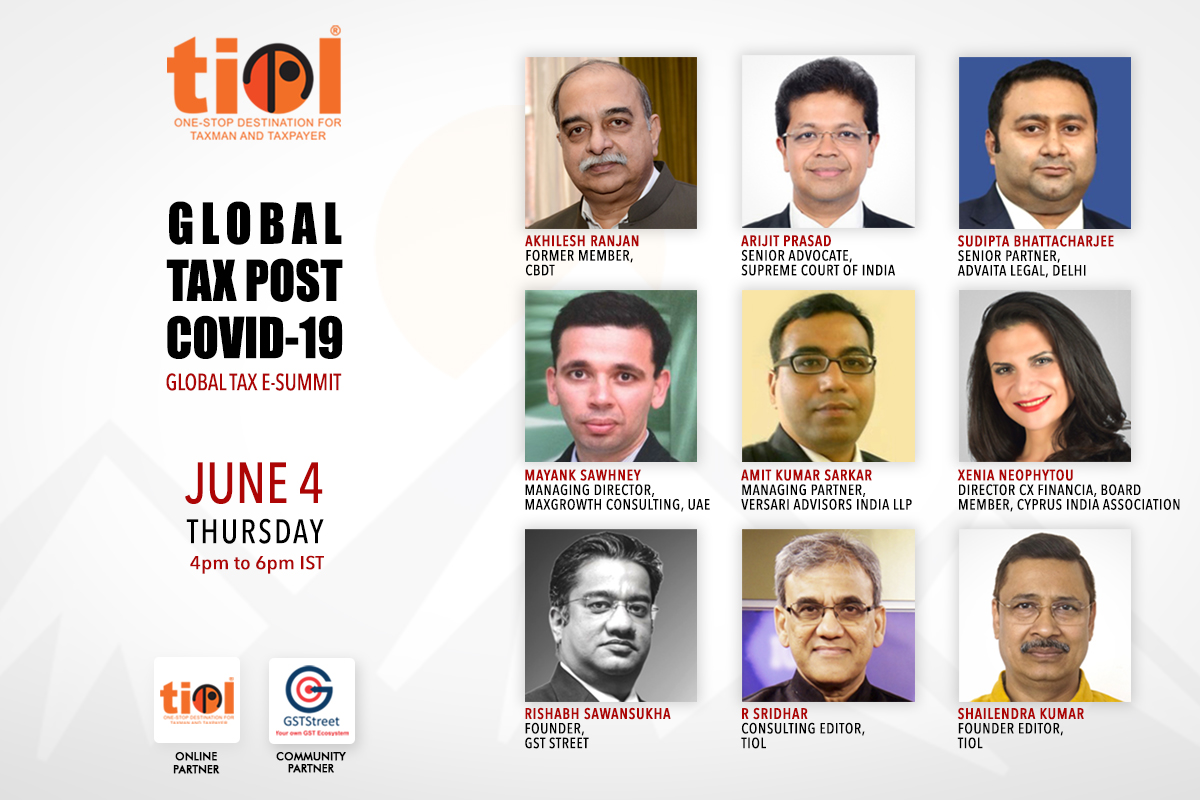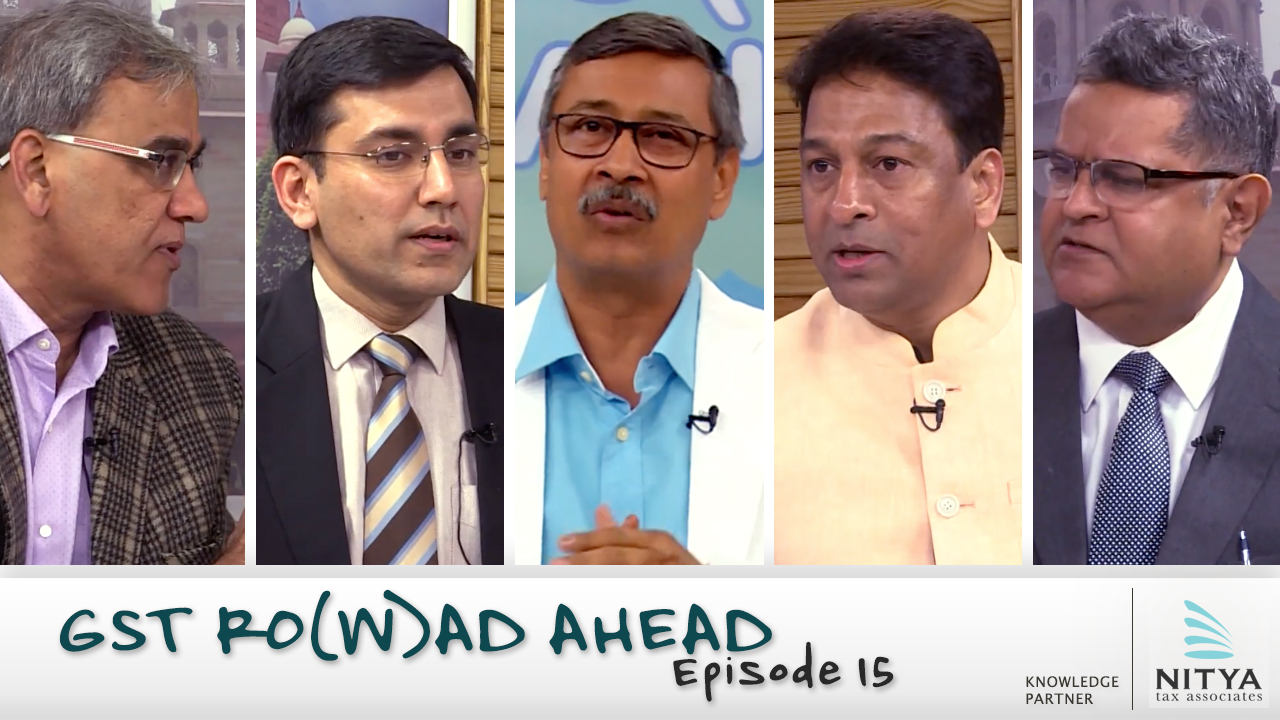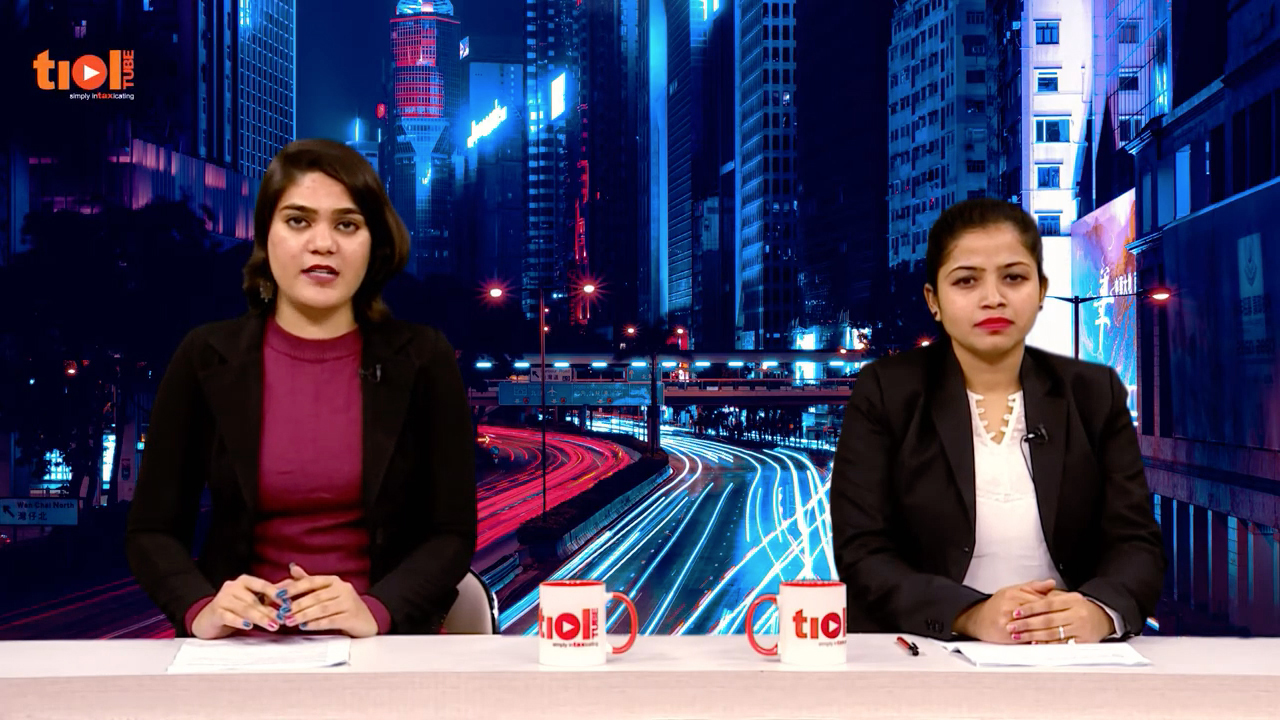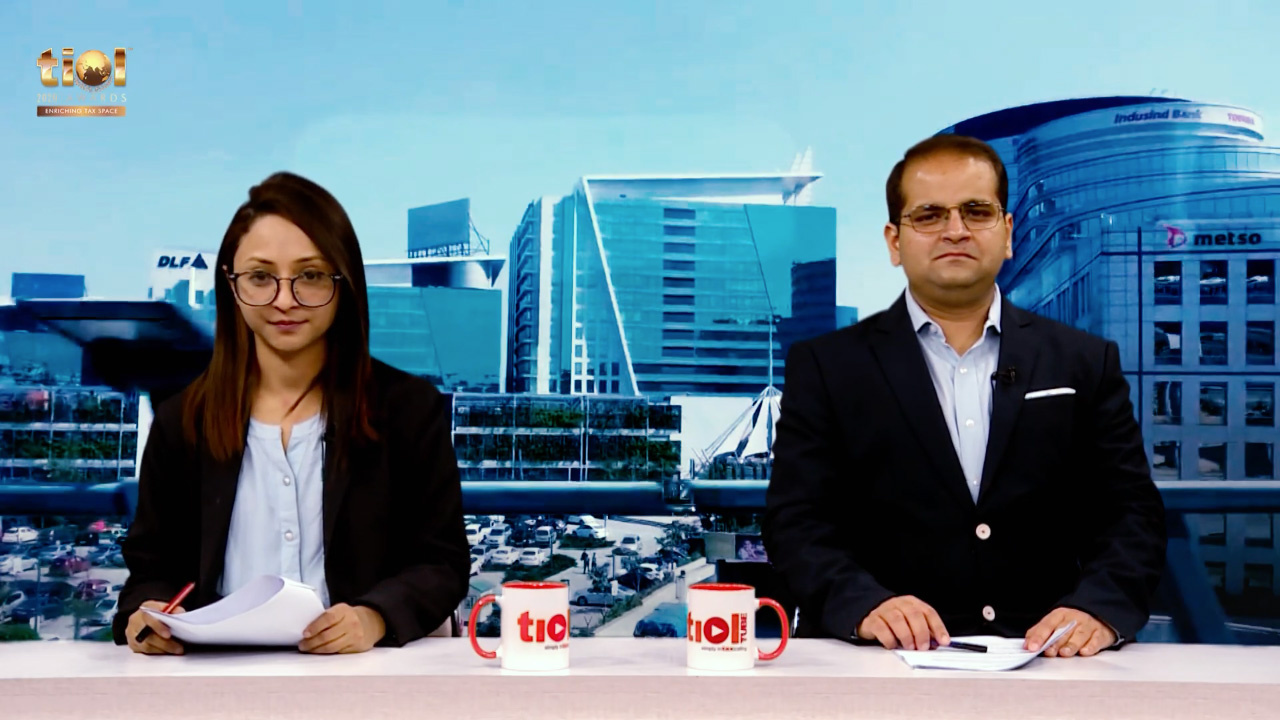| SERVICE TAX
2020-TIOL-790-CESTAT-DEL
Vaatikaa Construction Pvt Ltd Vs Pr.CST
ST - In regard to Service Tax Appeal No.53250 of 2015 filed by assessee, the submission is that the demand was made and confirmed under "construction of complex" services, even though, the nature of activity carried out by them was in the nature of "works contract", which fact is evident from the order of Principal Commissioner in Service Tax Appeal No.53251 of 2015 and Service Tax Appeal No. 53307 of 2015 wherein it has been found as a fact in regard to same contracts that the activity carried out was in the nature of "works contract" - The Supreme Court in Larsen and Toubro Ltd. 2015-TIOL-187-SC-ST noted that a works contract is different from a contract for service simpliciter and could be subjected to service tax only with effect from 1 June, 2007 - Thus, it was not permissible for the Revenue to issue a notice demanding service tax under "construction of complex services" as defined under section 65 (105) (zzzh) of FA, 1994 when the nature of activity was of "works contract" - Likewise, a demand of service tax under a particular category could not have been confirmed under a different category - Thus, in Service Tax Appeal No.53251 of 2015, the demand of service tax could not have been confirmed under "works contract" when the SCN was issued under "construction of complex services" - In regard to Service Tax Appeal No.53307 of 2015 filed by assessee, the contention of assessee is that the benefit of advances amounting to Rs.70,70,250/- from the taxable values of service tax as per the balance sheet should have been given to them - The Principal Commissioner has rejected this contention for the reason that the taxable value of service provided by the party did not tally with the balance sheet figures and, therefore, service tax liability was required to be calculated as per the balance sheet figures available on record - Assessee has submitted that the figures appearing in the balance sheet are the closing balance of advances, which are different from the figures of actual advance received - It has also been stated that a certificate of a Chartered Accountant had been filed with the balance sheet but that has not been considered by Principal Commissioner - No reason has been assigned by Principal Commissioner as to why the certificate of Chartered Accountant was not accepted - It is clear that instead of considering the actual advances received during a particular year, the Principal Commissioner has computed taxable value on the closing balance of advances as appearing in the balance sheets - The excess demand of Rs.3,49,553/- due to inclusion of advances is set aside: CESTAT
- Appeals partly allowed: DELHI CESTAT
2020-TIOL-789-CESTAT-BANG
Popular Vehicles And Service Ltd Vs CCE, C & ST
ST - The assessee is authorized dealer of Maruti Udyog Ltd. and engaged in business of selling used or pre-owned vehicles through their True Value Division - Alleging that the profit earned by the assessee on purchase and sale of used cars, is a consideration towards BAS rendered by assessee, Revenue issued three SCNs to the assessee - Department also alleged that the incentives and discounts received by assessee from M/s. MSIL also attract levy of service tax under BAS - Coming to the issue of taxability of profit earned by assessee on sale/purchase of used cars, the issue is already settled in favour of assessee in the case of Sai Service Station 2013-TIOL-1436-CESTAT-MUM - Said order has been upheld by High Court of Kerala in 2017-TIOL-1339-HC-KERALA-CX which has gone in detail into the issues involved at length and they have upheld the decision of the Tribunal - Coming to the second issue, as already noted above, the issue is settled in favour of the assessee themselves by this Bench relying on Sai Service Station Ltd 2013-TIOL-1436-CESTAT-MUM wherein it was observed that these incentives are in the form of trade discount - Both the issues are no longer res integra as the issue stands squarely settled in favour of assessee: CESTAT
- Appeals allowed: BANGALORE CESTAT
CENTRAL EXCISE
2020-TIOL-788-CESTAT-AHM
Gujarat State Fertilizers And Chemicals Ltd Vs CCE & ST
CX - Appeal has been filed by M/s. Gujarat State Fertilizers & Chemicals Limited in respect of demand of duty on Sulphur purchased by them by availing benefit of exemption Notification No. 12/2012-CE dated 17 March 2012 - Sulphur is used for manufacture of Sulphuric Acid/Oleum which, in turn, is used for manufacture of Molten Urea - Revenue's objection is that the some quantity of Molten Urea is used as input for the manufacture of Melamine and, therefore, the appellants are not entitled to benefit of notification 12/2012-CX, Sr. no. 55 - It is noticed that Molten Urea which comes into existence is itself a chemical fertilizer - In this circumstance, Bench finds no merit in the Revenue's case insofar as the use of Sulphur in manufacture of Urea is concerned - Exemption in respect of Sulphur used in manufacture of Urea is allowed: CESTAT [para 6]
CX - Issue relates to use of Sulphur in the manufacture of Sulphuric Acid/Oleum which, in turn, is used in Caprolactam Plant - Caprolactam is manufactured along with Ammonium Sulphate, which is undisputedly a chemical fertilizer, and, therefore, the appellant would be entitled to avail benefit of Notification No. 12/2012-CE in respect of use of Sulphur which, in turn, is used in the manufacture of Ammonium Sulphate: CESTAT [para 7]
CX - Sulphur used in the quantity of Hydroxylamine Sulphate manufactured and sold by appellant in the open market needs to be confirmed: CESTAT [para 7]
CX - Sulphuric acid used in the cooling tower for the control of acid alkaline ratio (pH value) of the water which was later on used in the ammonia plant is entitled to exemption notification 12/2012-CX: CESTAT [para 8]
CX - Use of Sulphuric Acid in the manufacture of Phosphoric Acid (and Phospho Gypsum) which in turn is used to produce Ammonium Phosphate - The benefit of 12/2012-CX has been sought to be denied on the ground that by-product Phospho Gypsum is also manufactured and sold in the open market on payment of duty - It is not in dispute that Ammonium Sulphate is fertilizer - In this regard, the arguments in respect of Sulphuric Acid used in the manufacture of Urea would equally apply that Sulphuric Acid was in turn used for production of Ammonium Sulphate – ratio of the apex court decision in National Organic Chemical Industries Limited - 2008-TIOL-211-SC-CX is squarely applicable to the instant case – therefore, there is no merit in the Revenue's arguments that benefit of Notification No. 12/2012-CE is to be denied - appellant have admitted liability in respect of Sulphur which is used in the manufacture of Sulphuric Acid and sold in the open market on payment of duty - liability for Central Excise duty would arise nonetheless in respect of Sulphur used in the manufacture of Phosphoric Acid which was cleared on payment of duty: CESTAT [para 9]
CX - Penalty - No penalty can be imposed u/s 11AC of CEA, 1944 as there is no apparent malafide intention and the issue relates to interpretation – Benefit of limitation is also extended: CESTAT [para 10]
Conclusion: All demands set-aside except for the demand within limitation on the quantity of Sulphur used in the manufacture of Hydroxylamine Sulphate (HX/HAS) and Phosphoric Acid sold by appellant on payment of duty – Appeal partly allowed: CESTAT [para 10]
- Appeal partly allowed: AHMEDABAD CESTAT
2020-TIOL-787-CESTAT-MAD
Kallakurichi Cooperative Sugar Mills Ltd Vs CCE
CX - CENVAT - Apart from a bald allegation in the SCN that angles, channels and plates are used as support structures, department has not put forward any cogent evidence to show that these are support structures for particular item of capital goods - there is no restriction with regard to use of these items prior to 7.7.2009 - Even after 7.7.2009, the restriction applies only to their use for laying foundation or as support structures for capital goods - As these items have not been used as support structures or for laying foundation, Bench finds that the disallowance of credit is unjustified - impugned order set aside and appeal allowed with consequential relief: CESTAT [para 5 to 7]
- Appeal allowed: CHENNAI CESTAT
CUSTOMS
2020-TIOL-793-CESTAT-DEL
Suneet Kumar Jain Vs CC
Cus - Application praying for condonation of delay is filed by assessee - It is observed that the order to be challenged is admitted to have been received by assessee within 3-4 days of it was pronounced - Two grounds have been submitted for the delay despite the said receipt; that the assessee being busy in compliance of some Department's direction and the Counsel did not received the notice in time - The first ground is not opined sufficient explanation for the delay as big as of 135 days - The assessee was appearing before Commissioner (A) who received the order within three to four days of the order which is proposed to be challenged under the present appeal - There have been findings against the present importer in the decision of 7th of August, 2019 in the appeal as was filed by applicants, co-noticee - It becomes clear that before the said decision the assessee was not inclined to file the appeal and the present appeal is the outcome due to the said decision - Coming to the second reason, there is no statutory mandate of any notice, summon, or copy of any order to be served upon the Counsel - The service has to be effected on the party concerned - The said service, in the present case of the order under challenge dated 22.03.2019 admittedly got affected on assessee on 26th March, 2019 itself - Failure on his part to not to approach his Counsel and to not to seek the further advice, amounts to negligence, as well as non-pursuance on the part of the assessee - Same cannot be held a "sufficient cause" as is required under section 5 of Limitation Act to explain the impugned delay - In absence thereof, the delay cannot be condoned: CESTAT
- Application dismissed: DELHI CESTAT
2020-TIOL-786-CESTAT-BANG
CC Vs Bevel Gears India Pvt Ltd
Cus - Revenue is in appeal against the impugned order dated 15.11.2017 whereby the Commissioner (Appeals) has allowed the appeal of the Respondent to the extent of dropping the penalty imposed under Section 114A and also dropping confiscation/redemption fine under Section 111(o) of the Customs Act, 1962
Held: Goods have been imported by the respondent by claiming benefit of duty exemption under Notification No. 158/95-Cus dated 14.11.1995 so as to re-export the same after doing the necessary repair which the respondent tried their level best but due to some technical issues, they could not do the repair as per the specification of the client and, resultantly, they could not re-export the said goods within the time prescribed in the Notification - Commissioner (Appeals) has rightly held that there is no collusion and wilful mis-statement or suppression of fact in the present case because the respondent has admitted their liability along with interest but they have only challenged before the Commissioner the imposition of penalty under Section 114A and confiscation of goods under Section 111(o) - Further, Commissioner (Appeals) after considering all the material on record has rightly come to the conclusion that in these circumstances, Section 114A is not applicable by relying upon the decision of the Tribunal in the case of Jeetendra Shah - 2009-TIOL-218-CESTAT-MAD - Commissioner (Appeals) has rightly held that there is no "Mens rea" on the part of the respondent to evade payment of duty and, therefore, he has rightly set aside the penalty and the confiscation – Revenue appeal dismissed: CESTAT [para 6, 7]
- Appeal dismissed: BANGALORE CESTAT |









